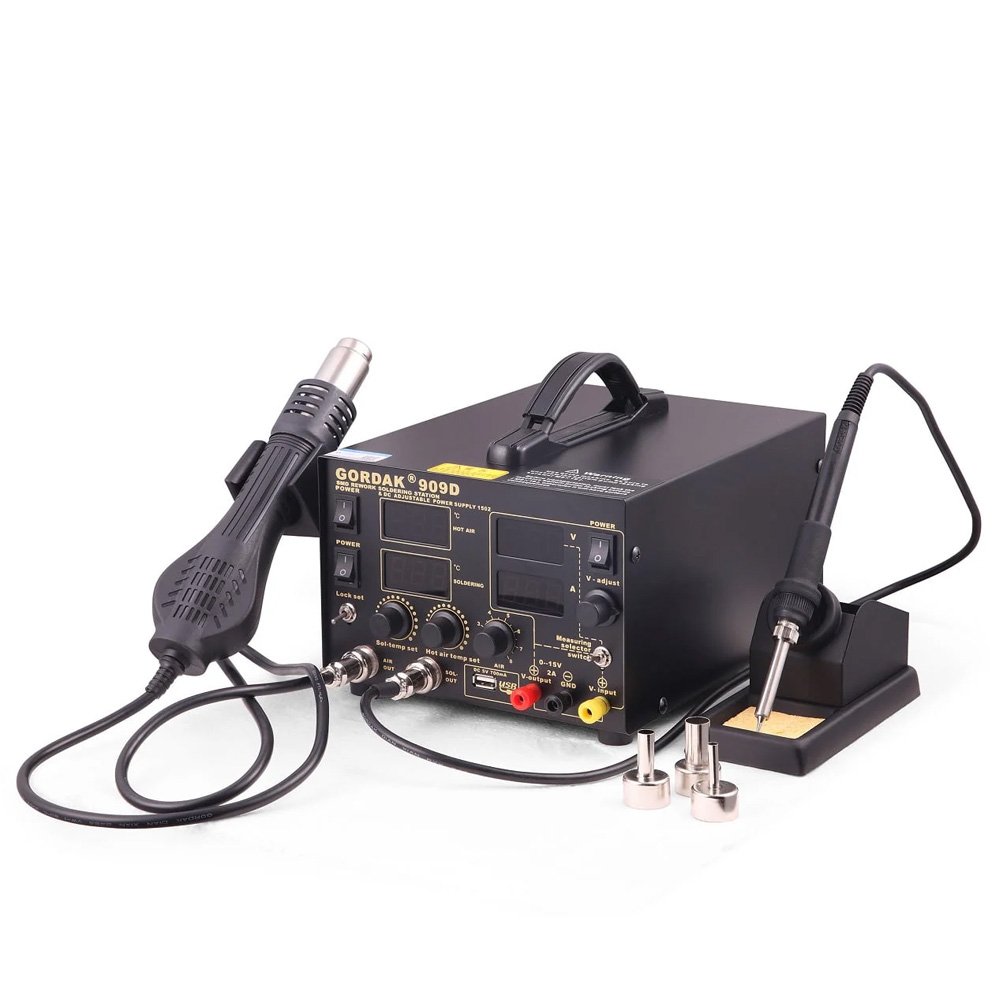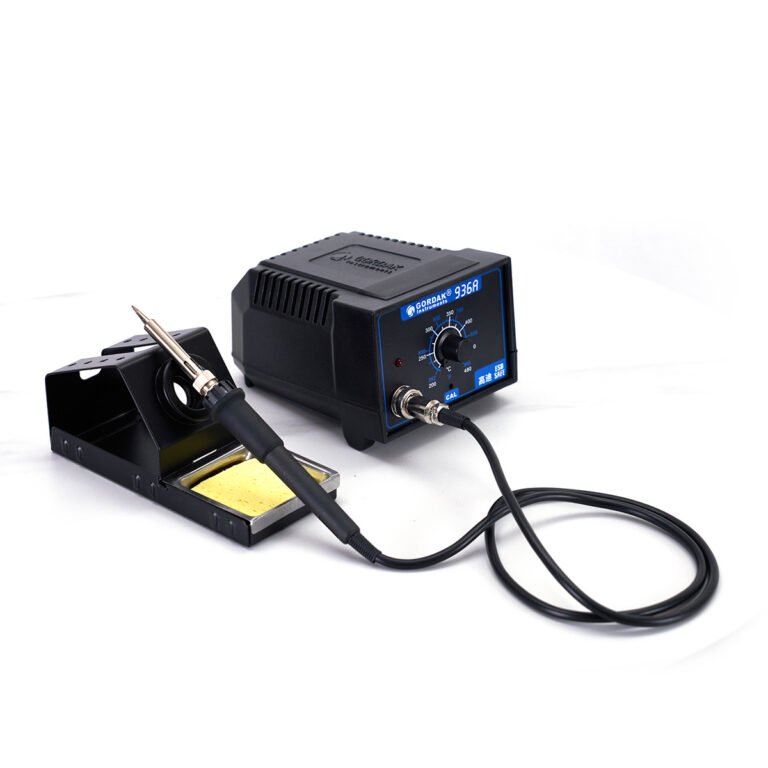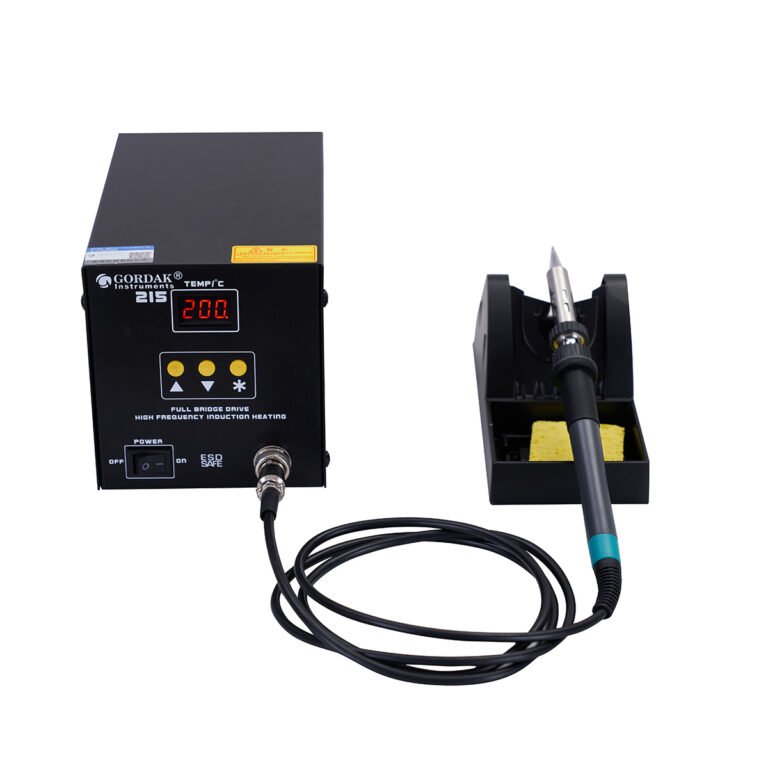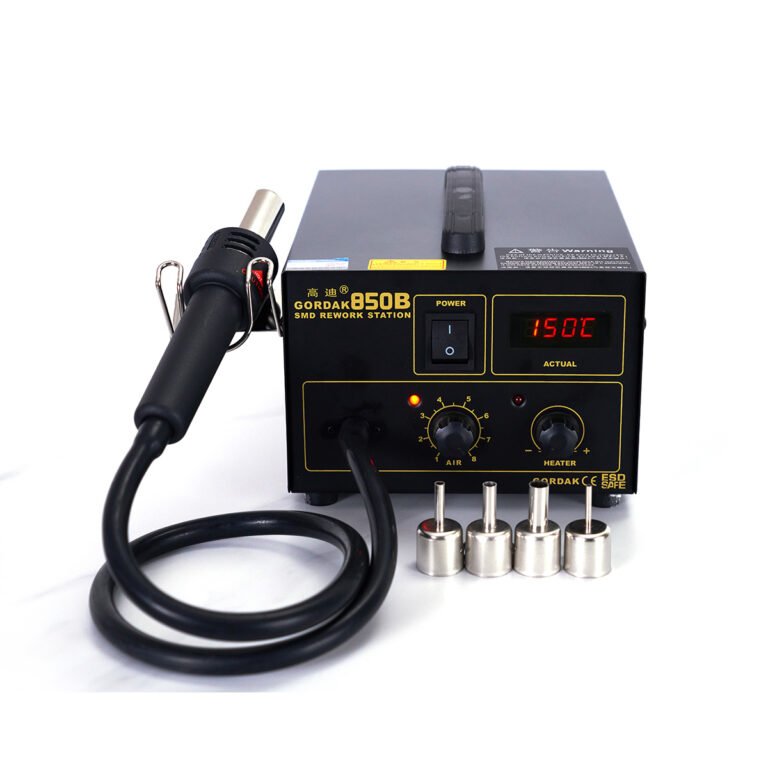Soldering is an essential skill in electronics, but it also comes with safety risks such as burns, toxic fumes, and accidental injuries. Beginners often wonder: Should I wear gloves while soldering? The answer isn’t always straightforward, but understanding the risks and best practices can help you make safer choices at the workbench.
1. The Heat Hazard
A soldering iron can reach temperatures of 300–450°C (572–842°F), making burns one of the most common soldering injuries. Gloves may seem like the perfect solution, but thick gloves can reduce dexterity and make handling small components more difficult. This may actually increase the chance of accidents.
Tip: Instead of bulky gloves, prioritize careful handling, proper tool rests, and keeping your work area organized.
2. When Gloves Can Be Useful
Gloves aren’t always necessary, but in some cases, they can provide valuable protection:
- Handling hot components: Heat-resistant gloves can be helpful if you frequently move recently soldered parts.
- Working with chemicals: If you are cleaning with flux removers or solvents, chemical-resistant gloves protect your skin.
- Heavy-duty soldering: In industrial environments with high heat or large joints, gloves may be a smart precaution.
3. Alternatives to Gloves for Everyday Soldering
For most electronic soldering tasks, gloves are not required. Instead, consider these safety measures:
- Use a soldering stand to safely hold the iron when not in use.
- Work in a ventilated area or use a fume extractor to avoid inhaling flux fumes.
- Wear safety glasses to protect your eyes from splashes or flying solder.
- Keep tools organized to minimize accidental contact with the hot tip.
- Practice steady hand control to reduce mistakes.
4. Personal Protective Equipment (PPE) Checklist
Here’s what most soldering professionals recommend:
- Safety glasses or goggles – essential
- Fume extraction or mask – highly recommended
- Heat-resistant mat – to protect the workspace
- Optional thin gloves – only when handling heat, not for delicate soldering tasks

Conclusion
So, should you wear gloves while soldering? For everyday electronic work, gloves are usually not necessary and may even make the process harder. However, in high-heat, chemical-heavy, or industrial environments, gloves can provide valuable protection. The key is to balance safety with control, ensuring you protect yourself without compromising precision.
About GORDAK
With decades of expertise in soldering solutions, GORDAK provides safe, reliable, and professional-grade equipment for technicians, engineers, and hobbyists worldwide. Our soldering and rework stations are designed with:
- Precise temperature control for safe and accurate soldering
- ESD-safe features to protect sensitive electronics
- Ergonomic designs that support comfort and control
- Affordable, durable tools trusted by professionals
At GORDAK, we believe safety and performance go hand in hand. Equip yourself with tools that protect you while delivering the precision you need.
Contact: info@gordakelec.com
Safety & Best Practices
Safety Tips for Soldering: Should You Wear Gloves?
Safety Tips for Soldering: Protecting Yourself and Your Equipment



